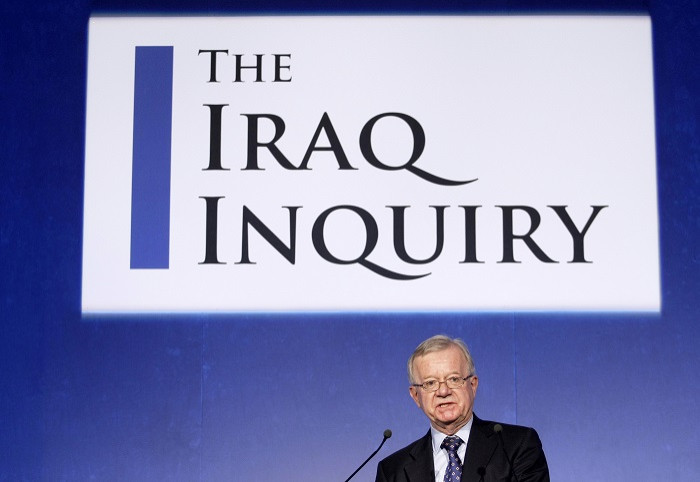Chilcot Inquiry Into UK Involvement in Iraq War Beset by Severe Delays
Inquiry chairman still filing declassification requests, fuelling fears report may not be released until 2015

The Chilcot inquiry into the Iraq war is still making requests for the release of government papers "on an almost daily basis", fuelling fears that it will not be completed before the next UK general election.
Senior government officials said Sir John Chilcot is still filing a "steady stream" of requests to civil servants to declassify documents that he wants to quote in his report.
Officials had believed that the report was close to being published at the end of May, when Chilcot agreed to a deal with cabinet secretary Sir Jeremy Heywood to allow some cabinet papers, and excerpts of Tony Blair's conversations with George W Bush before the war, to be published.
A spokesman for the inquiry confirmed that despite the deal on declassification, the process of Maxwellisation, whereby Chilcot will warn those he plans to criticise, such as Blair, has not restarted.
Report may take until 2015
So far, the inquiry has cost more than £9m ($14.6m, €11.3m), including £1.5m in the last financial year. Senior politicians and officials are concerned that the report will not be published before December at the earliest, and have warned that if it is not ready by the end of February, it may have to be delayed until after the election.
One senior source also suggested that Chilcot may be striving to balance the views of different members of his panel, which may be contributing to the delay.
Speaking to the Public Administration Select Committee, cabinet secretary Sir Jeremy Heywood said: "There has been a delay of sorts as we processed tens of thousands of requests for declassification of very complicated and sensitive documents. It is a very difficult thing. The controversy around this continues today. It is very important that the whole story is told.
"We have tried our level best to break through normal conventions, legal requirements, international relations and the nine different categories that the original protocols suggested might be a reason for not publishing material. We have had to work through all of that in good faith as fast as we possibly can to try to make sure the whole story is laid bare.
"I believe John Chilcot is happy on where we have got to on that point. I am absolutely confident that the finished report will be as transparent as it needs to be."
© Copyright IBTimes 2025. All rights reserved.






















